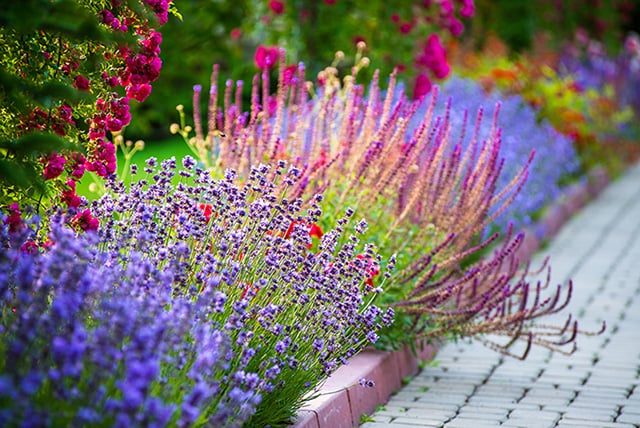
Landscaping your home can be overwhelming, especially if you’re worried about using too much water and energy. There are ways to cut back on water and energy while creating your perfect landscape. Before you start planning, consider these three key factors: plants, soil, and maintenance.
- Plants
First, start with native plants that use little water. Regional plants adapt to local soils better, which require less water.- Group certain plants together
Placing plants together in hydro zones will help reduce water waste. Hydrozones are areas that hold plants with the same irrigation system or watering needs. Grouping similar plants together will also stop plants from receiving too much or too little water. - Consider the elements
For plants to grow and use less water, think about sun exposure and shade. You must consider what plants will do well in your site’s conditions. - Know your plants’ needs
When you look for plants, read how to properly take of them, and that includes knowing the right amount of water to give them.
- Group certain plants together
- Soil
Keeping your soil healthy is very important for conserving water in your landscape.- Aerate soil
This is just a fancy term for allowing your plants to breathe. You can aerate your yard by using a lawn aerator. It increases water filtration, flow and reduces runoff. - Use mulch
Be sure to place it around shrubs and garden plants. This will help stop weed growth and erosion. There’s plenty of different mulches to choose from including bark chips, straw, and stones. - Keep soil healthy
Properly maintaining soil will help with retaining water, absorbing extra nutrients while getting rid of pollutants. If you would like to measure the health of your soil, you can test the pH balance, composition, and organic components.
- Aerate soil
- Maintenance
Keeping your soil healthy is very important for conserving water in your landscape.- Make it a routine
A water-efficient garden could require regular weeding, pest control, and pruning. Be careful how often you water and fertilize the plants. Too much could stunt your plants’ growth. - Raise your mower to the right height
If you mow too close to the ground, this will cause new growth that will need more water. To prevent this from happening, make sure to raise your mower blade. Cutting height depends on the type of grass. You can contact your local county extension service for more information.
- Make it a routine
Taking care of water-smart landscaping can be beneficial to your wallet and the environment in many ways. It can lower your water bill, decrease pollution and help preserve natural resources. If you have any questions on plumbing or your irrigation system, call Michael’s Plumbing today. You can also schedule an appointment online.

